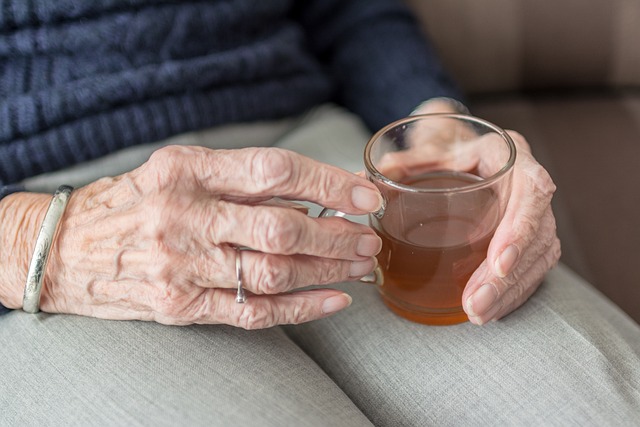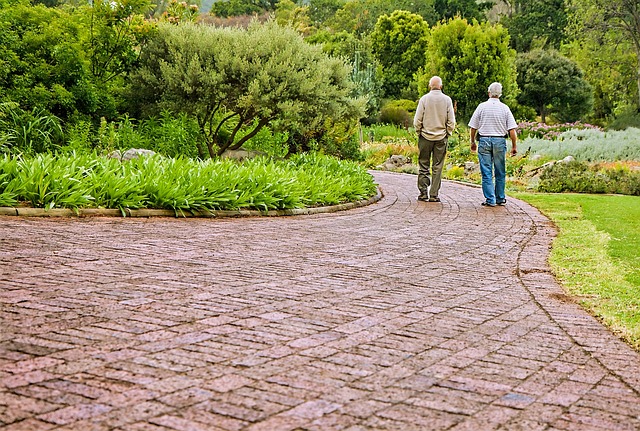Image by Engin Akyurt from Pixabay
We’ve all felt this way… too nervous, sick, or busy to eat even a bite of food. But what if you felt like this every day, and it started to affect your health? This is a real struggle facing many seniors. While there are medications out there meant to increase appetite, it’s always best to try natural solutions before relying on medications that could be expensive or come with harmful side effects. Keep reading to discover how to increase appetite in elderly naturally.
Loss of Appetite: What Could it Mean?

Image by Sabine van Erp from Pixabay
Loss of appetite in seniors can have many potential causes, including physical, emotional, and social factors. Some possible reasons for loss of appetite in seniors may include:
Medical conditions: Seniors may experience loss of appetite due to underlying medical conditions such as infections, chronic diseases, or gastrointestinal problems.
Medication side effects: Certain medications can cause loss of appetite as a side effect.
Dental problems: Seniors with dental problems or ill-fitting dentures may experience difficulty chewing or swallowing, leading to a loss of appetite.
Emotional or mental health issues: Depression, anxiety, or other emotional or mental health issues can cause seniors to lose interest in food or lose their appetite.
Social isolation: Seniors who live alone or are socially isolated may lose their appetite due to loneliness or lack of companionship during meals.
It is important for seniors who experience a loss of appetite to talk to their healthcare provider to determine the underlying cause and receive appropriate treatment. In some cases, simple changes to the diet or lifestyle may be enough to restore appetite, while in other cases, medical or mental health treatment may be necessary.
Why a Healthy Appetite is Important in Seniors

Image by CyberComputers from Pixabay
We all know how important it is to eat. But a healthy appetite is important for seniors for several reasons including…
Nutritional needs: Seniors require a balanced and nutritious diet to maintain their health and well-being. A healthy appetite ensures that they consume enough nutrients, vitamins, and minerals necessary to support their body’s functions.
Weight management: Seniors who have a healthy appetite are more likely to maintain a healthy weight. This can help prevent obesity and associated health problems such as diabetes, heart disease, and joint problems.
Energy and vitality: Eating a balanced and nutritious diet can help seniors maintain their energy levels, vitality, and overall quality of life. This can also help them stay physically active and engaged in social activities.
Immune system function: A healthy appetite ensures that seniors get enough nutrients to support their immune system, which can help prevent infections and illnesses.
Healing and recovery: Seniors who are recovering from an illness or injury may require a higher intake of nutrients to aid in the healing process. A healthy appetite can ensure that they get the nutrients they need to recover quickly.
Overall, a healthy appetite is essential for seniors to maintain good health, prevent illnesses, and enjoy a high quality of life.
How to Increase Appetite in Elderly Naturally

Image by Steve Buissinne from Pixabay
Regular physical activity and a larger variety of meals are two common ways to increase appetite naturally in elderly. But that’s not all. Check the list below for several ways to increase appetite in elderly people:
- Encourage regular physical activity: Engaging in regular physical activity can stimulate appetite in seniors. This can include activities such as walking, yoga, or gentle exercises.
- Serve small, frequent meals: Offering small, frequent meals throughout the day can be more appealing to seniors than large meals. This can help stimulate their appetite and encourage them to eat more.
- Add flavor to meals: Adding herbs, spices, and other seasonings to meals can enhance their flavor and make them more appealing to seniors. This can encourage them to eat more and enjoy their meals.
- Offer a variety of foods: Offering a variety of foods can help keep meals interesting and appealing to seniors. This can also ensure that they get a balanced and nutritious diet.
- Provide social support: Eating meals with others can be a social and enjoyable experience for seniors. This can help stimulate their appetite and encourage them to eat more.
- Address underlying health issues: If seniors are experiencing a loss of appetite due to underlying health issues, it is important to address these issues with their healthcare provider. Treating the underlying condition can help improve appetite.
- Avoid caffeine: This may be tough for the coffee drinkers out there, but caffeine is a natural appetite suppressant. According to healthline.com, Avoiding caffeine will keep you feeling hungrier more often. If you can’t skip your morning cup of joe, opt for decaf or a nice caffeine-free tea. If you need alternate ways to increase energy without caffeine, refer to our in-depth article.
It is important to consult with a healthcare provider before making any changes to a senior’s diet or lifestyle to ensure that it is safe and appropriate for their individual needs.
Assisted Living Care With Fresh-Cooked Food in White Lake, Michigan
For assisted living in the metro Detroit area, Sandyside Senior Living is one of the few facilities offering home-cooked meals and on-site doctor visits. Loss of appetite is a common issue in elderly men and women in senior care, and the professionals at Sandyside can help. Get in touch to schedule a walk through for your loved one today.
*This article contains partial AI-generated content
Sandyside Senior Living
This information was provided by Sandyside Senior Living in White Lake, Michigan. Sandyside specializes in advanced care for seniors with dementia, Parkinson’s, and all age-related illness.
Interested in learning more about Sandyside Senior Living? Contact Sandyside online, or call at (248) 698-3700.
To get in touch with Sandyside Senior Living please complete the form below:
VISIT SANDYSIDE SENIOR LIVING TODAY
PHONE: (248) 698-3700


